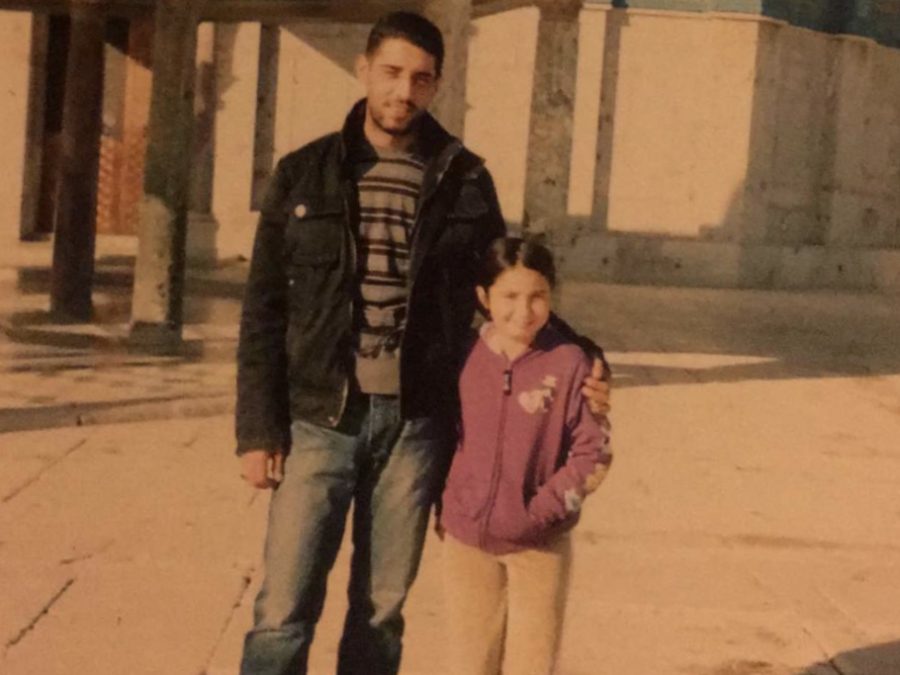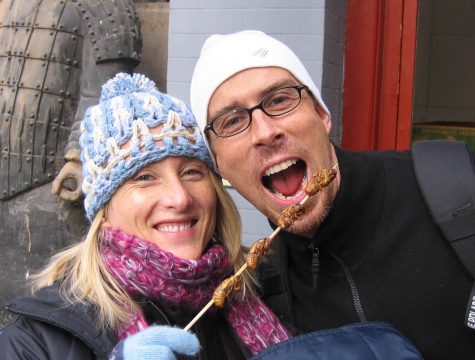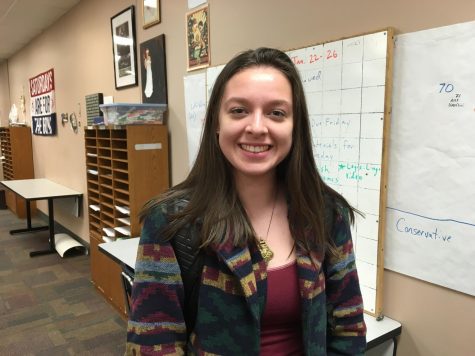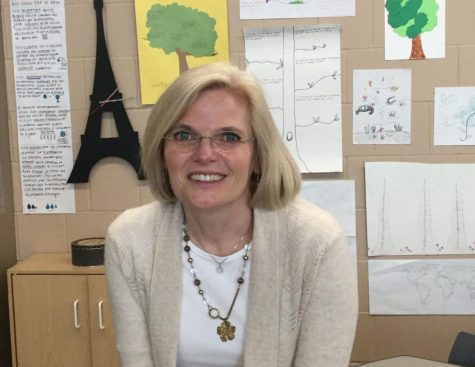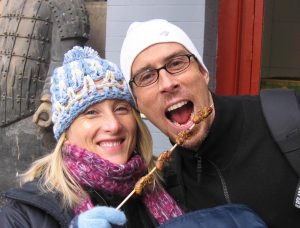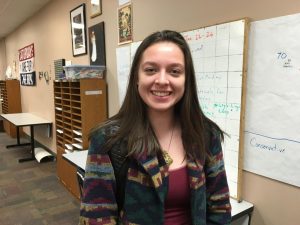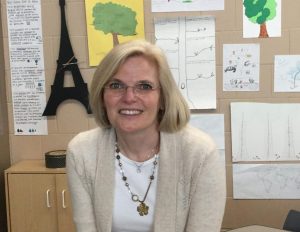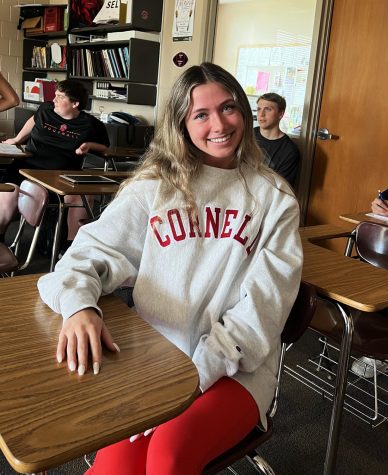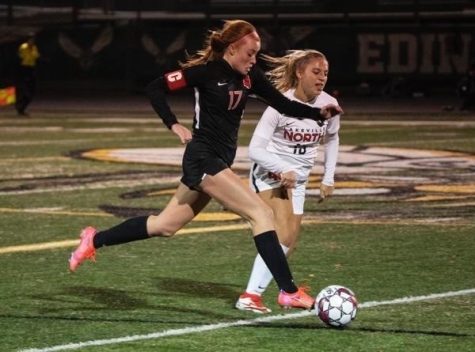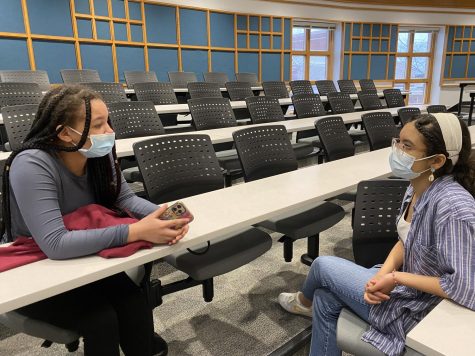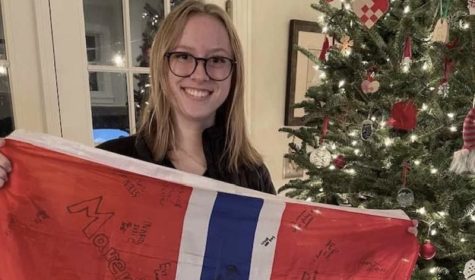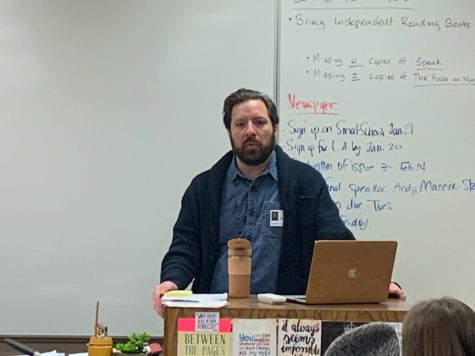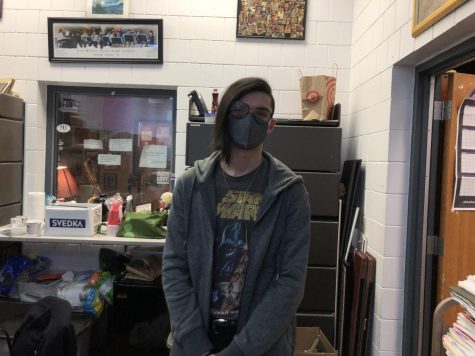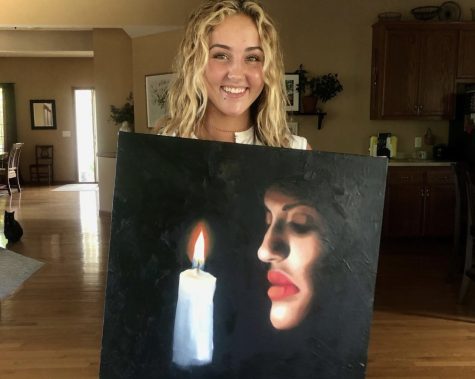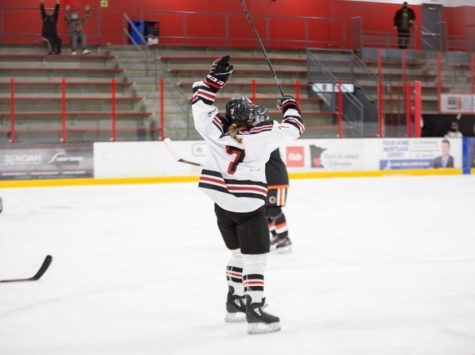Tessa Johansen visits father in Jerusalem
Looking out of a taxi window and to the Palestinian landscape, senior Tessa Johansen notices the growing Israeli settlements, their houses seemingly forming out of thin air. Israelis man posts throughout Jerusalem with machine guns pointed in Palestinian faces.
Tessa is returning to Palestine to see her father, Tarek Abu Bassam Abu Sbeih, for the first time in three years. Abu Sbeih lives in a suburb of Jerusalem inside of the West Bank. As a child, Tessa visited often and for long periods of time, but as she has grown older, that has become more difficult.
“It’s pretty expensive to go that far across the world, so I only go there once every few years,” Tessa said. “The last time that I visited really frequent was probably when I was in third grade, and then I didn’t visit until eighth grade.”
Early life
Tessa’s mother, Gina Johansen, at 25, attended graduate school in Cairo when she began traveling to Jerusalem by bus, eventually meeting Abu Sbeih.
“I was fascinated by the city and made some friends and started working [in Jerusalem]. About 6 months later the intifada started and some of my Czech friends took me back to Prague with them,” Gina said.
Abu Sbeih remained in Jerusalem while Gina moved to Prague.
“That’s where he lives. He’s always lived there, his family is there and basically, he was 20 at the time, 19 or 20, so he was not fit to go move in with this random American woman. And he also had an arranged marriage planned at the time. So he couldn’t just leave,” Tessa explained.
Tessa was born several months later in Prague, where she lived with only her mother. Because they were not citizens, they did not have the benefits that other Czech people had, such as health care and help with children. This made things financially challenging, and Gina moved back to Marine, Minn., with Tessa when she was four months old. Six months later, they returned to Prague to give living there another try.
“We returned to Prague about six months later for about a year while I tried to make a go of teaching English as a second language. But that didn’t work out. We finally had to return to the USA because of money. I have regretted it every minute of every day since,” Gina said.
Later life
Due to school, work and financial restrictions, Tessa is not able to visit her father as often as she used to. When she was 13, she found his Facebook and was able to start messaging him to stay in contact. She was also able to see pictures of her half-siblings, whom she has never met or been in contact with.
“It’s kind of frustrating. I would like to meet them obviously. The only times I actually get to see pictures of them are when my dad posts them online, which is only every few years. I see them age over these random time jumps. I’m like, ‘Okay, that’s my brother now.’ But yeah, I wish I had contact with them,” Tessa said. “My dad has never taken me to his house. Whenever I go to visit, we always go somewhere else… I don’t think his wife would be too happy with him meeting his child that he had with like, this random American woman. It’s especially weird in their culture because he’s in an arranged marriage with this woman.”
Some Palestinian families partake in arranged marriages, and children and relationships outside of that marriage are frowned upon. Because of this, Tessa has not been invited to meet most of her father’s side of the family.
“It’s a very strange thing to do really, especially when you’re that young. He found this random woman and had a child with her when he was already scheduled to get married to this other woman. It’s just like not something you should really do in their eyes,” Tessa said. “My dad very obviously still has feelings for my mom… I mean, it’s not really morally wrong to me, since I guess arranged marriages are morally wrong to me… I think it’s kind of depressing that my dad wasn’t really able to choose who we ended up with.”
On her 14th birthday, however, during her first visit back to Jerusalem in five years, her father threw her a birthday party where she was able to meet some of her uncles.
“My dad hosted a birthday party for me, and that’s when I met a lot of my uncles. They seem nice, none of them really seem to have many bad opinions, at least not outwardly. They didn’t say anything to me really, I think I might be like some sort of a novelty to them. Because I don’t know. It’s a weird thing to happen.”
Present day
Growing up in America and without her father, Tessa missed out on Palestinian culture. One of the hardest parts of growing up in the United States has been having “an American perspective of the world,” and that she can “only speak one language”. At 7, she started learning Arabic, and 14, she started teaching herself about Palestinian culture and researching what is happening in Palestine.
“When I was a child I didn’t know what was happening at all. There were horrible things happening around me but I was like, ‘Oh great. This is just how things are here,’ like I didn’t really know what was going on, and I’m awful at Arabic like I can’t really speak it, but I can read it very roughly. So I’m trying to learn Arabic,” Tessa said.
The tensions between Israel and Palestine make it very difficult for Tessa and Gina to travel to Palestine to visit Abu Sbeih. The process of entering the country is lengthy and tiring, and the treatment of Arabs is poor. On their most recent trip to Jerusalem in June, Tessa and Gina flew into Jordan and crossed the border into the West Bank from there.
“That makes the process easier with the Israelis. The interrogation is easy [in Jordan] when it’s not at the airport. When you go straight into the West Bank they are used to Arabs. Then I have to cross the wall which is really annoying cause, you know, the Israelis don’t really manage their stuff. It’s like, basically standing in a crowd of people and waiting for them to open these gates for like hours,” Tessa said.
Once in the West Bank, Tessa witnessed Israelis with large machine guns pointed at random Palestinians, and an old Palestinian woman being kicked by soldiers for selling bay leaves at a Palestinian market.
“I guess he just didn’t want her there even though it was an area where like Palestinians sell food. There are a lot of little things that they do that are awful, and there are a lot of big things they do that are awful, but I haven’t personally seen anyone get killed, so that’s something,” Tessa said.
As if traveling to Jerusalem was not difficult enough, it is nearly impossible for Abu Sbeih to visit the United States because of their ties with Israel. Because of the Israeli takeover of Palestinian land, Abu Sbeih is a stateless person and does not have a visa to travel. In order for him to have a chance to visit the United States, Tessa and Gina would have to go to the embassy in Washington, D.C., with a birth certificate, proof that Abu Sbeih is Tessa’s father, an affirmation that he is just coming to visit, and other lengthy processes.
“I’m honestly kind of doubting [that Abu Sbeih will visit the United States], I want him to, but I’m doubting it like because of the process, and I don’t know if he would be up to that,” Tessa said.
Though Tessa only visits her father every few years, and though the trip to get there is difficult, Tessa and Abu Sbeih still have a good relationship, sending each other birthday gifts and messages, and giving life updates over Facebook messenger.
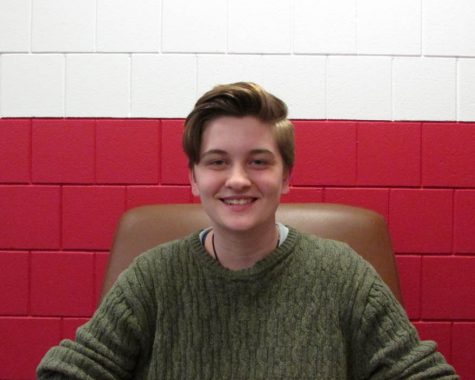
Lilly Sample, a senior, is an Online Editor-in-Chief for the Pony Express. Aside from working on the newspaper and Pony Express website, she volunteers...



